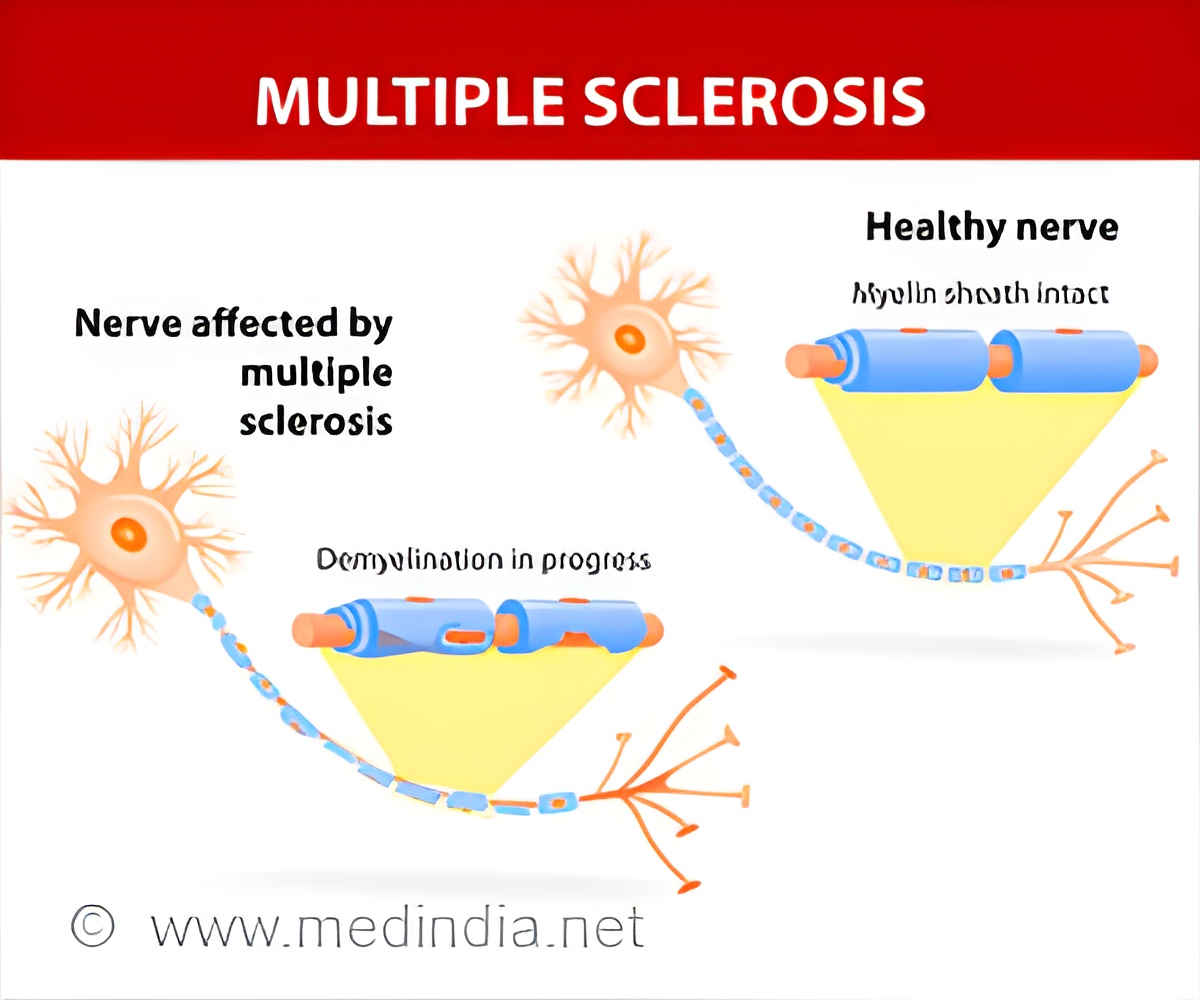The cellular basis of how estrogen protects the nervous system from damage in patients with multiple sclerosis.

‘Estrogen-like treatment acts on both immune cells of the brain and on oligodendrocytes, together resulting in repair of myelin and less disability.’





BACKGROUNDMultiple sclerosis is a chronic autoimmune, neurodegenerative disease marked by visual impairment, weakness and sensory loss, as well as cognitive decline. These symptoms emerge when inflammatory immune cells destroy the myelin sheath that surrounds nerve processes called axons. Loss of that protective insulation disrupts electrical communication between nerve cells.
The third trimester of pregnancy has been previously shown to reduce relapse rates by approximately 70 percent as compared to before pregnancy, and other studies have shown benefit over the long term due to multiple pregnancies. An estrogen unique to pregnancy that is made by the fetus and placenta has been proposed by Dr. Rhonda Voskuhl and colleagues to mediate this pregnancy protection in both the MS mouse model as well as in two successfully completed clinical trials of estriol treatment in MS patients.
How that happens has remained a critical question. Voskuhl, who led the latest study, reported mouse studies showing that estrogen protected the brain from damage by activating a protein called estrogen receptor beta (ERb). Her new research identifies which cells within the brain are mediating this protective effect.
METHOD
Advertisement
IMPACT
Advertisement
Source-Eurekalert















